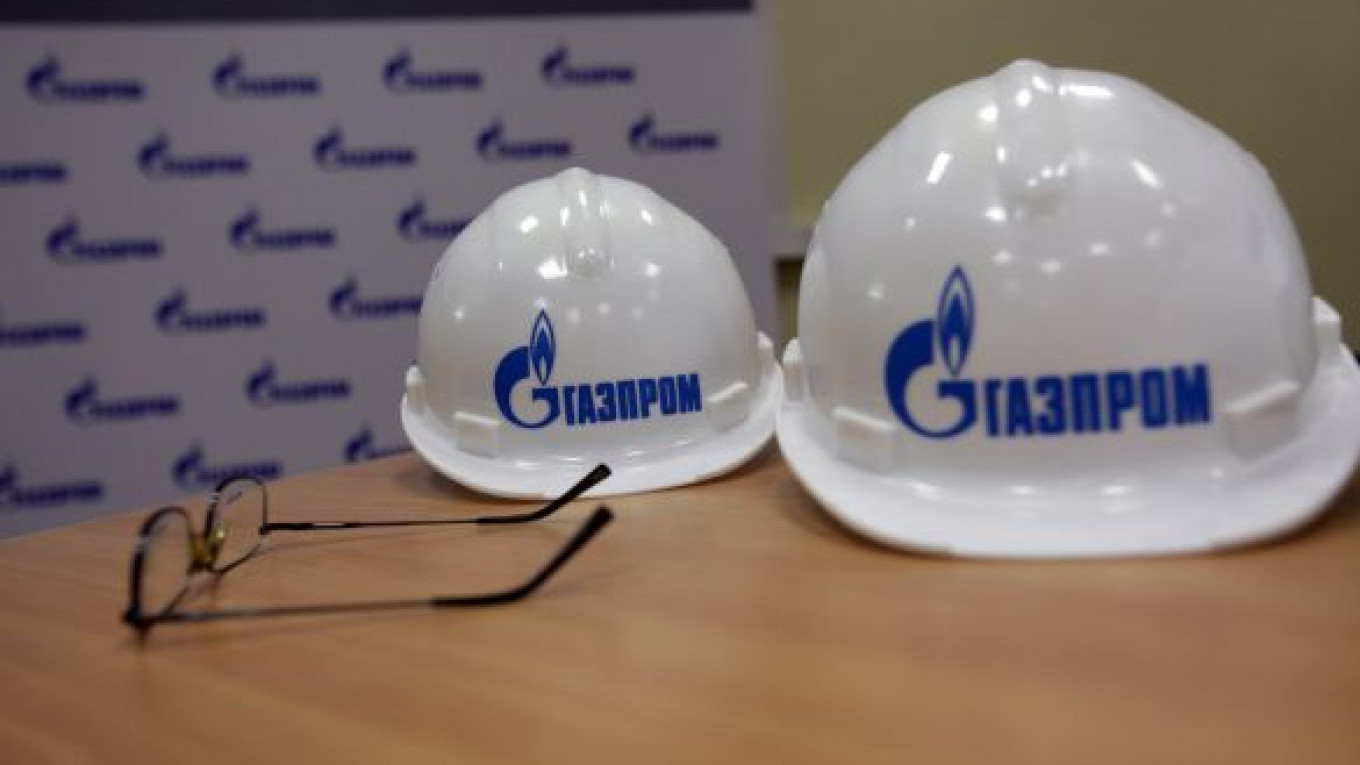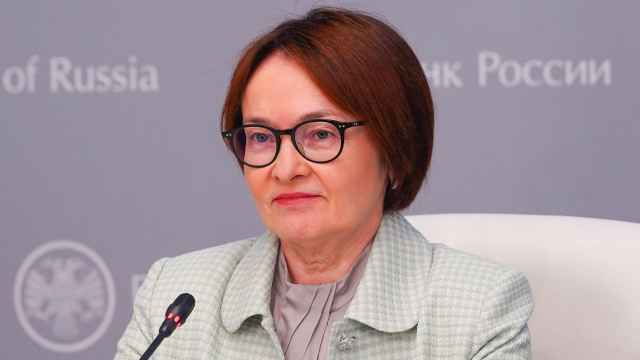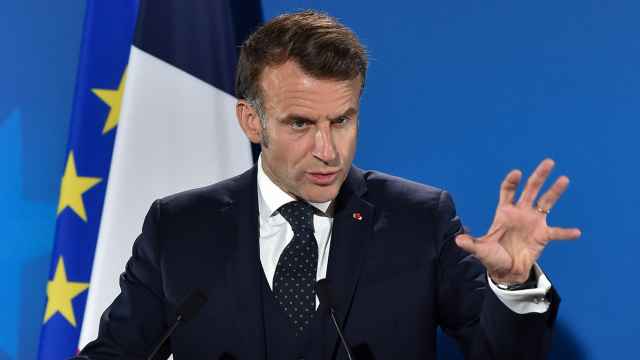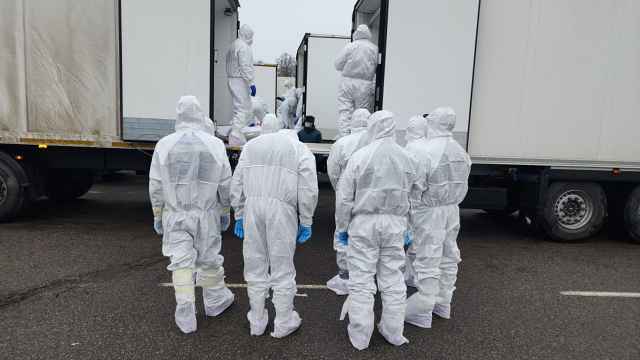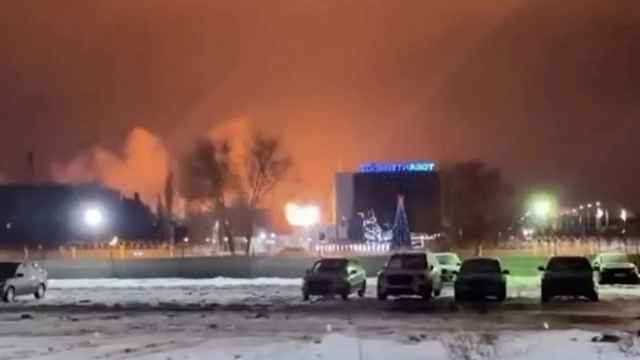Negotiations to save a Gazprom-led consortium charged with developing one of the world's biggest natural gas fields continued Friday, sources close to the consortium said as a Kremlin-imposed deadline drew near.
Gazprom's partners in the Shtokman Development Consortium, Statoil and Total, were in St. Petersburg attempting to hammer out a new agreement.
"The process is ongoing. Nothing more to say," a spokesman for Gazprom said Friday.
Christophe de Margerie, chief executive of France's Total, and Helge Lund, head of Norway's Statoil, met with Gazprom chief executive Alexei Miller at Gazprom's stand at the St. Petersburg International Economic Forum to discuss Shtokman's terms, Gazprom said.
The Kremlin is loath to permit the failure of the flagship project to exploit the giant Shtokman field, which holds 3.9 trillion cubic meters of gas — more than the entire Norwegian continental shelf.
One investor consortium has already failed. The project aims to extract gas from the seabed of the stormy Barents Sea.
Industry sources have said the Kremlin was hoping to announce progress at the forum, a traditional venue for flagship deals.
President Vladimir Putin last month went so far as to instruct the partners to strive for a final investment decision on the project, which had eluded them for more than a year.
But talks centered instead on a new framework agreement for the project, whose current shareholder pact expires July 1. Much of the design work has been thrown out and staff at the consortium's offices slashed, sources have said.
The consortium is leaning strongly toward an LNG-only version of the Shtokman development plan. This would abandon plans to pipe half the gas output to Russia's mainland for sale through the Nord Stream pipeline and instead focus on seaborne deliveries of the super-cooled liquefied natural gas.
Gazprom has said this year that it is looking to bring in new partners, but Total and Statoil have not said they plan to quit the project.
Media reports have identified Royal Dutch Shell, already a partner of Gazprom in the Sakhalin-2 LNG project, as a likely third partner for Shtokman to help spread risk.
The International Oil Daily, a newsletter, reported Friday that Shell would replace Total in the consortium. The report, quoting sources close to Gazprom, said the changes were understood to have been approved by Putin.
Putin hosted a meeting of top foreign and Russian energy executives late Thursday night and told Shell CEO Peter Voser that he would welcome greater cooperation with Shell in Russia.
Such expressions of support have been made in the past, but not necessarily as a precursor to deals.
Analysts say Shell could also be a logical choice because of its large LNG portfolio and its marketing power.
The current shareholder agreement gives exclusive marketing rights to Gazprom, but analysts have speculated privately on a marketing role for Shell.
Shtokman was discovered in Soviet times, but development of the remote Arctic deposit has been repeatedly delayed by changes in development plans and cost estimates.
The latest blow to the field's development has come from the shale gas revolution in the United States, which made exports of LNG to the continent unattractive. Gas consumption in Europe also fell due to the economic downturn.
Gazprom has a 51 percent stake in the group, while Total has 25 percent and Statoil has 24 percent.
Shell and Statoil declined to comment.
"There are far too many rumors," a Total spokesman said.
A Message from The Moscow Times:
Dear readers,
We are facing unprecedented challenges. Russia's Prosecutor General's Office has designated The Moscow Times as an "undesirable" organization, criminalizing our work and putting our staff at risk of prosecution. This follows our earlier unjust labeling as a "foreign agent."
These actions are direct attempts to silence independent journalism in Russia. The authorities claim our work "discredits the decisions of the Russian leadership." We see things differently: we strive to provide accurate, unbiased reporting on Russia.
We, the journalists of The Moscow Times, refuse to be silenced. But to continue our work, we need your help.
Your support, no matter how small, makes a world of difference. If you can, please support us monthly starting from just $2. It's quick to set up, and every contribution makes a significant impact.
By supporting The Moscow Times, you're defending open, independent journalism in the face of repression. Thank you for standing with us.
Remind me later.


